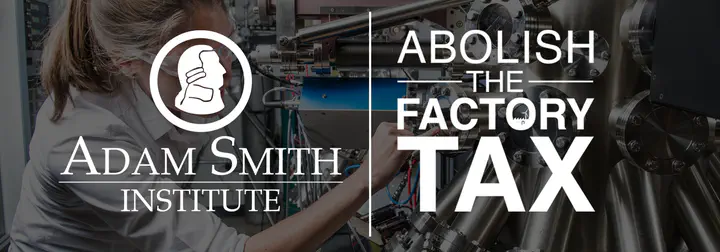
EXECUTIVE SUMMARY
- The UK has had the lowest level of private investment in fixed capital as a share of GDP in the G7 for over two decades. This low level of investment has contributed to the rapid downfall of the UK’s manufacturing sector, which has declined by more than any other G7 nation.
- Britain’s corporate tax system is exceptionally hostile to capital investment. The UK is ranked 33rd in the OECD on the Tax Foundation’s Capital Cost Recovery index.
- The UK’s system of capital allowances fails to account for inflation and a real return on capital, as a result businesses cannot fully deduct the costs of investments in equipment as they can with other day-to-day expenditures such as wages.
- The capital stock per worker in manufacturing is more than twice as high as it is in other areas of the economy. The UK’s corporate tax treatment of investment in fixed capital is in effect a Factory Tax, holding back growth in parts of the country that are relatively more dependent on manufacturing, such as the North and Midlands.
- The bias in the tax system against investment is a contributing factor to Britain’s productivity crisis by discouraging investment. Output per hour worker has grown at its slowest rate since the industrial revolution over the last decade, at just 0.3% a year.
- Eliminating this Factory Tax, by allowing businesses to immediately write-off capital expenditures, would boost investment by 8.1% and labour productivity by 3.54% (£2,214 per worker) in the long-run.
- It would also improve the UK’s Corporate Tax Rank on the Tax Foundation’s International Tax Competitiveness Index from 15th to 6th and move us from 33rd to joint 1st best treatment of fixed capital investment in the OECD.
Click the Cite button above to demo the feature to enable visitors to import publication metadata into their reference management software.
Create your slides in Markdown - click the Slides button to check out the example.
Supplementary notes can be added here, including code, math, and images.